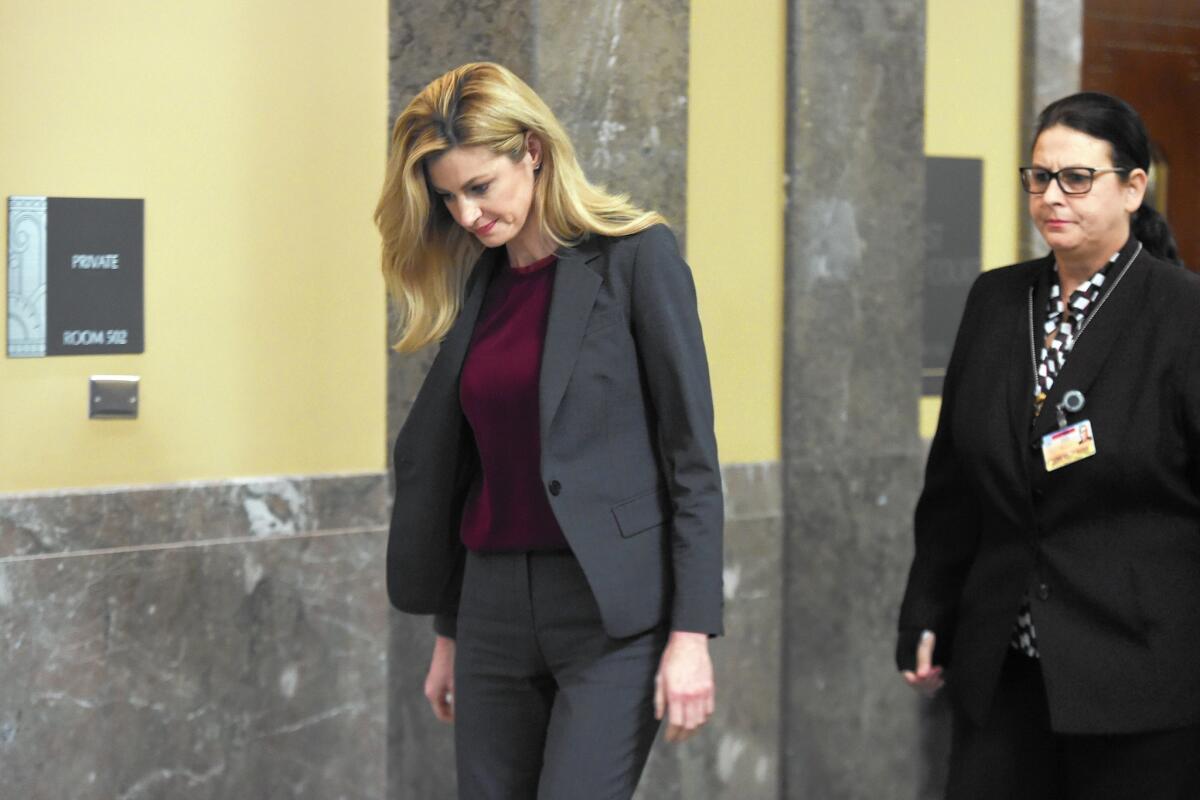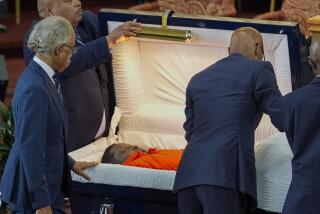Tips to help travelers be proactive in protecting their privacy

- Share via
The $55 million a Nashville jury awarded Erin Andrews, a TV sports reporter, in a hotel stalker case has raised questions about hotel safety. What do you have a right to expect in terms of privacy? How worried should you be? And how can you protect yourself?
Andrews’ case stemmed from incidents in 2008 in which Michael David Barrett of Illinois videotaped her nude while she was in her room at the Nashville Marriott. The award was against Barrett as well as West End Hotel Partners and Windsor Capital Group, which manage the hotel. Marriott was dismissed from the suit.
The videos were shared online and widely viewed. Barrett, according to the New York Times, also acknowledged that he videotaped other women.
A hotel guest should have an expectation of privacy, said Josh King, chief legal officer for Avvo, a consumer website that provides legal services and information on lawyers. You should have the same expectation of privacy in a hotel room as you do in a home or in, say, a department store dressing room, which also are areas where privacy has been breached.
Today, he added, videography is at everyone’s fingertips. Nearly two-thirds of Americans have a smartphone, Pew Research Center said, which makes capturing video easy.
“The hotel generally has a duty to keep you safe,” King said, but the best way to protect yourself is to be proactive.
“It is much better to keep anything from happening than to try to get justice,” King said. “You’re much better off not having to go through that process.”
Kevin Coffey, who has been in law enforcement for more than three decades and whose company, Corporate Travel Safety, advises on business travel, agrees.
“It’s up to you to be responsible for your own personal safety,” he said, noting that in the Andrews case the hotel failed in its duty by allowing Barrett to book a room right next to hers.
Should you be worried? Andrews’ case was extreme and probably unusual, Coffey said.
The key word there is “probably,” Coffey said. “We only know stuff when somebody brings it to the police department’s attention.” Although he doesn’t believe that multitudes of stalkers are out there taking a hacksaw to hotel room peepholes, as Barrett allegedly did, he also doesn’t have statistics.
But there are some steps you should take to make sure your privacy is not violated, King and Coffey said:
— Reserve and check in using a first initial and last name.
— If the hotel desk clerk announces or in any way reveals your room number within hearing or viewing distance of anyone, politely and quietly ask for a new room and explain your concerns.
— Keep your luggage tag covered (or buy the kind with a flap that folds down) so your name is not exposed.
— Cover the peephole with a couple of Band-Aids.
— Dress modestly when you are in your hotel room. No, you shouldn’t have to, but emerging fully dressed from the bath also ensures you won’t be exposed if you left the drapes open, never mind a stalker.
— And, of course, be careful about whom you open the door for. If you’ve called room service or housekeeping, for example, you might use the ploy that Coffey’s wife, Connie, suggested: When someone knocks on the door, use the latch to peer out and then say to the visitor, “Just a second. My husband’s just out of the shower so let me close the bathroom door” — even if her husband is half a globe away.
Being your own advocate may not come naturally, but for anyone who travels, it’s one of the surest routes to safety.
Have a travel dilemma? Write to [email protected]. We regret we cannot answer every inquiry.
::
L.A. Times Festival of Books
Kevin Coffey will speak at 12:15 p.m. April 9 and at 10:45 a.m. April 10 at the Travel Smart stage. To read more about the festival on the USC campus, go to events.latimes.com/festivalofbooks.
More to Read
Sign up for The Wild
We’ll help you find the best places to hike, bike and run, as well as the perfect silent spots for meditation and yoga.
You may occasionally receive promotional content from the Los Angeles Times.







